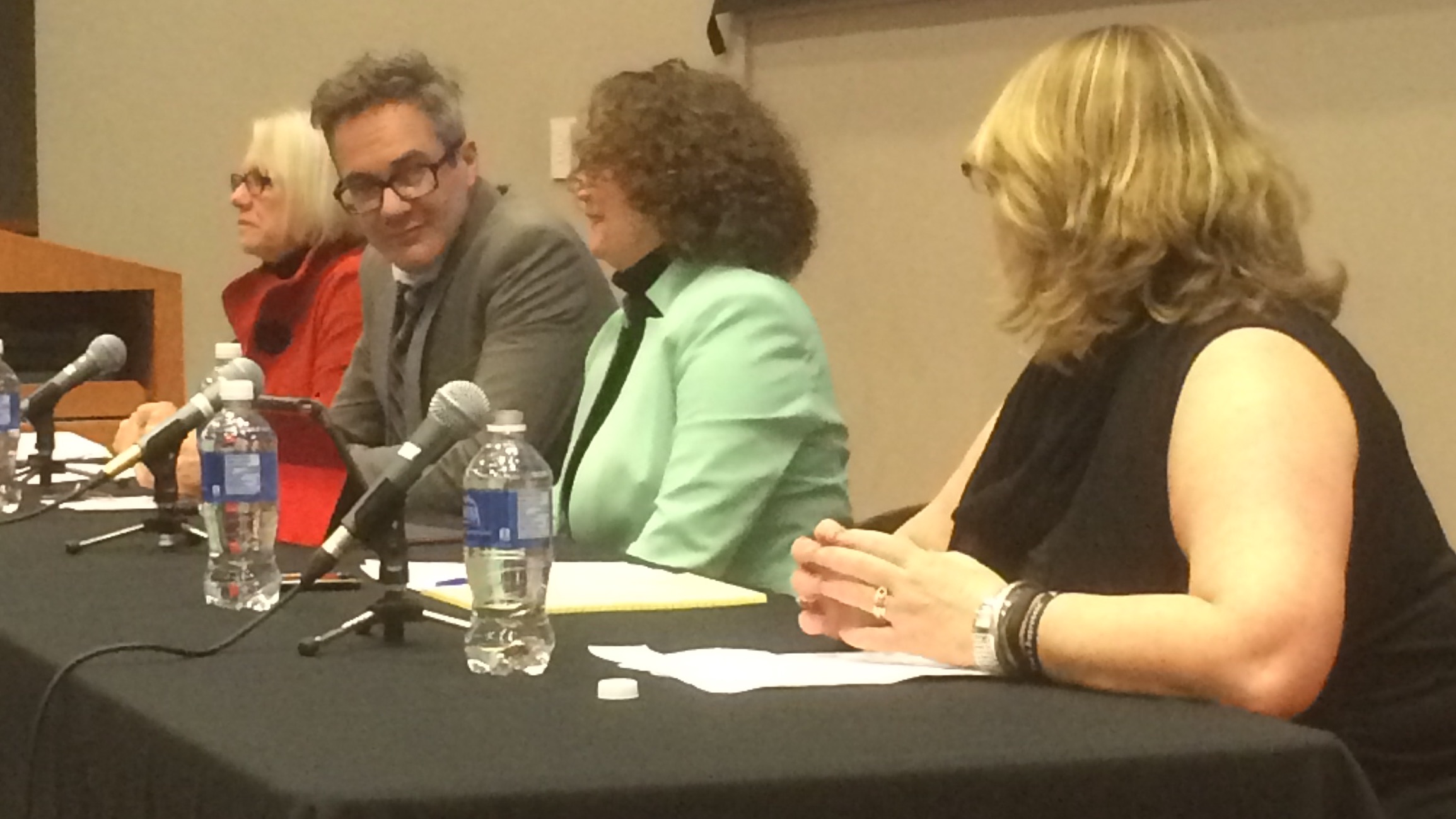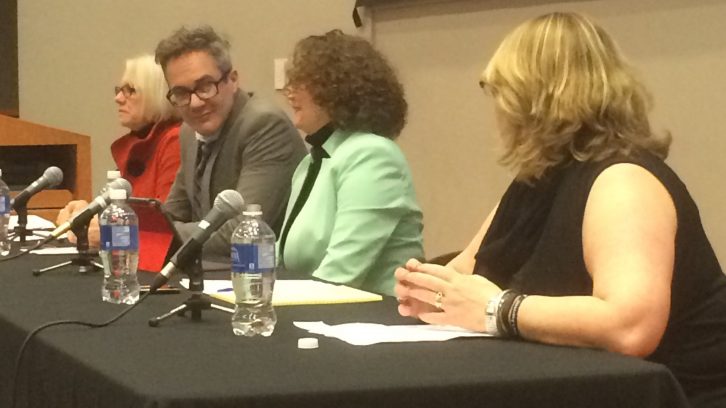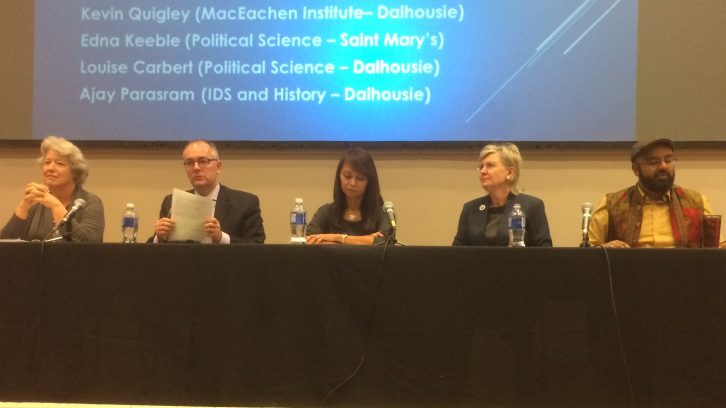Politics
‘What now?’ Halifax experts ponder life under Trump
Two panels of academics from around Halifax discuss the incoming U.S. President

caption
Panellists Mary Brooks, Brian Bow, Amal Ghazal, and Sarah-Jane Corke prepare before the first panel talk on Wednesday night. Missing from the photo: panellist Isaac Saney.
caption
Panellists Mary Brooks, Brian Bow, Amal Ghazal, and Sarah-Jane Corke prepare before the first panel talk on Wednesday night. Missing from the photo: panellist Isaac Saney.As Donald Trump is sworn in as the 45th president of the United States on Friday, people across the world are wondering what his presidency will mean for them.
While terms such as “misogynist” and “racist” often get thrown at the real estate mogul and former reality television star, he has yet to put forth detailed policies — and some of the pillars of his campaign are already coming into question.
He said he was going to build a wall, but only days after the election the word “fence” was being used. He said he wouldn’t cut social security and Medicare, but the Affordable Care Act is in the process of being repealed by his party before he takes office.
On Wednesday, Jan. 18, Dalhousie University held an event titled: “Trump: What Now?” The discussion featured two panels, each with five academics, from several Halifax institutions. It explored what can be expected from a Trump presidency. Nearly 200 people came to the event, which was held just two days before the presidential inauguration.
The discussion began with a short talk by Frank Harvey, the dean of the faculty of arts and social sciences at Dalhousie and the organizer of the event.
He said that because he has spent many years researching international relations, he generally believes that “leaders do not matter more than everything else.” The United States in particular was designed with three branches of government to allow for checks and balances of power. However, ever since Trump’s election, Harvey wonders if his theory is still valid.
Throughout many of the speeches, a common theme arose: nobody can predict what the incoming president will do, because his actions have been erratic.
“We’ll see after 100 days … then we can judge,” said Amal Ghazal, a professor of history at Dalhousie.
Light-hearted jokes about some of the more theatrical events of the election were met with laughs and particularly rousing comments were met with applause.
“A vote for Trump legitimized a lot of prejudice,” said Alex Mitchell, a Dalhousie student who attended the event. “But I go to school in Canada. How can I know what it’s like to live in rural Wisconsin?”
In light of Trump’s success, the question of Canada’s political future was also a topic of discussion. Trump, who starred in the reality TV show The Apprentice, won the Republican primary a year ago after running an underdog campaign against experienced politicians like Senator Ted Cruz of Texas and Governor John Kasich of Ohio. This week, a Canadian with similar roots in reality television announced his candidacy for leadership of the Conservative Party of Canada.
Kevin O’Leary is perhaps best known to Canadians for his roles on Dragon’s Den and Shark Tank. His former co-star Arlene Dickinson says he is the exact same person in real life as he is on the show. That is to say “he represents capitalism in its very worst form,” intent only “a path to power, fame or fortune.”
In light of O’Leary’s bid, Louise Carbert, from the department of political science at Dalhousie, asked during the panel: “could Canada get Trumped?”
She said no, because “our parties exert more control in choosing leaders.”
Kevin O’Leary, she argued, is “not going to win the Conservative leadership until he has the cooperation and approval of the Conservative party backroom insiders.”
Trump relied on populism to win the primaries and many insiders, such as Mitt Romney, were vocal against him until the very end.

caption
The second panel of the evening. Left to right: Kelly Toughill, Kevin Quigley, Edna Keeble, Louise Carbert and Ajay Parasram.There were a few voices on the panels that would not accept the wait-and-see rhetoric of the others in regards to Trump.
Sarah-Jane Corke, a professor of history at Dalhousie, said she sees “nothing positive about (Trump’s incoming) administration” and Brian Bow, a professor of political science at Dalhousie, joked candidly during a question period that he “already put money down on him being impeached.”
Edna Keeble, from the political science department at Saint Mary’s University, said that Trump “tapped into feelings, not facts.” She said the only reason she is optimistic about the incoming American administration is that “Trump is on the wrong side of history.”


K
K. Wolfe